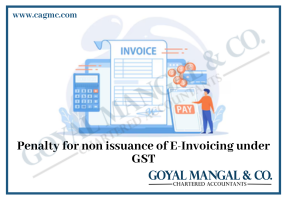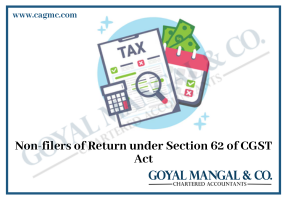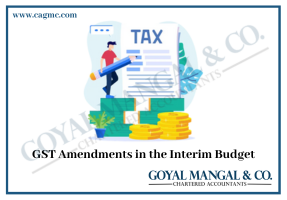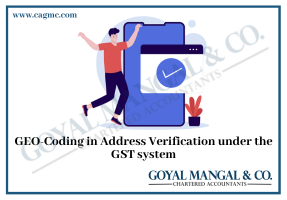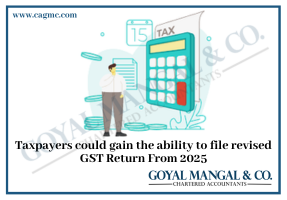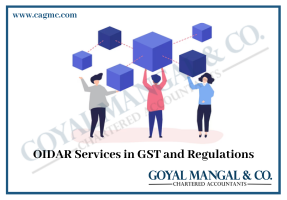| Table of Content |
Levy TCS on Foreign Remittance through Liberalized Remittance Scheme (LRS) and on selling of Overseas Tour Package (Section-206C)
In order to understand the amendment in the respective Section 206C we first need to know the meaning of Liberalized Remittance Scheme.
Liberalized Remittance Scheme “The Liberalized Remittance Scheme (LRS) of the Reserve Bank of India (RBI) allows resident individuals to remit a certain amount of money during a financial year to another country for investment and expenditure.”
As per the prevailing regulations, resident individuals may remit up to $250,000 per financial year. This money can be used to pay expenses related to travelling (private or for business), medical treatment, studying, gifts and donations, maintenance of close relatives and so on.
For widening and deepen the tax net, the government has proposed to amend section 206C to levy TCS.

Tax at Source on Foreign Remittance
An authorized foreign exchange dealer (usually Banks)receiving an amount of 7 lakhs or more in a Financial Year for remittance out of India under the LRS of RBI shall collect TCS of Rs. 5% from the buyer, being the person remitting such amount from India. In case the person does not have a PAN/ Aadhar Card the rate will be 10%.
LRS is mostly used by the people for the following purposes:-
- Money to their children studying abroad;
- Buying property abroad;
- Buying stocks listed in exchanges abroad.
So now if a person is planning to send more than 7 Lakhs Rupees a 5% TCS shall be deducted by the Foreign exchange dealer and will be paid to Income Tax Department and the rest of the amount can only be remitted abroad.
The above provisions shall be applicable with effect from 1st April, 2020.
Tax at Source on Tour Packages
With effect from 1st April, 2020 the overseas tour packages sellers are required to deduct and collect 5% TCS from the buyer. There is no lower limit on this so for e.g. if a person purchases an overseas package of Rs. 10000/- tour operator is required to deduct 5% of Rs.10000/- which will be Rs.500/-.
The provision will not apply in case:-
- the operator is liable to deduct tax at source under any other provision of the act and the amount has been deducted;
- Central Government, State Government , an embassy, a High Commission, legation, commission, consulate, the trade representation of a foreign State, a local authority or any other person notified by the Central Government in the Official Gazette for this purpose.
The additional amount however can be offset at the time of filing of tax returns.
The Budget documents state has also explained the definition of overseas tour programme package which means any tour package which offers visit to a country or countries or territory or territories outside India, and includes expenses for travel or hotel stay or boarding or lodging or any other expense of similar nature.
Hence, sending money abroad or visiting international destinations is set to become more expensive with the introduction of the above provisions proposing an additional levy on both of the activities.
The onus of collection and to deposit the TCS lies on the Authorized Dealer Banks.
Further, LRS includes both the capital as well as the current transactions. Investments in stocks or property tantamount to Capital transaction whereas payment for foreign education or medical treatment are classifies under current transaction.
Also the intention is not to tax overseas buyers of Indian goods. Since these entities are based abroad, they do not have any tax liability in India. The idea is not to bring them under the tax net.
Furthermore, this provision can be really helpful for the tax authorities to track payments made by residents to non-residents under hawala and other bogus mechanism. This section will enable the government to track the foreign travel of the residents of India which can be used as useful information in the risk based income tax assessment.
Questions which needs attention
Que. Whether this law applies to every person resident or non-resident whether carrying on the business of tour package situated in India or abroad?
Ans. Yes, it is applicable to applicable to all the persons (resident & non-resident) who carry on such business through websites or in physical mode of tour packages situated in India or abroad. There have been innumerable operators, in the competitive field, having presence on website and mandates everyone
Que. Whether this law is applicable to every seller to collect from every buyer irrespective of place of situation?
Ans. in this digital world it is difficult and extreme case like if a buyer from India is accelerated from a by a seller outside India to visit outside India, this law will be applicable. Once the operators are brought into tax net for TCS, the foreign operators operating through websites are likely to get exposed to tax on their income in India through PE status
Que. Another important question is whether the provision is applicable for the situations of sale of air tickets alone?
Ans. In case of sale of air tickets the operator does not offer a visit to a country outside India. They are merely selling the tickets and the transport is offered by the Airlines. Hence, none of them is offering visit.
Que. Likewise, if a customer does the Hotel booking himself using a website offering multiple options to the customers?
Ans. Here also the booking is done independently and does not attract the provisions of tax collection at source as Independent activities do not constitute a package and none of them offers a visit.
Que. What if a tour operator has package offering multiple visits through multiple places in India & outside India?
Ans. In this case the TCS will only be applicable for that portion of the estimated cost of overseas visit.
Que. Whether there is a provision of reversal or taking credit on cancellation of the booking?
Ans. No there is no such provisions.
